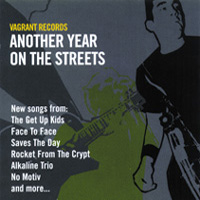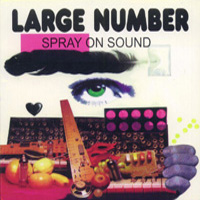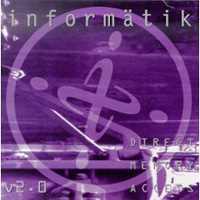 Informätik
Informätik
Direct Memory Access v2.0 (Sinless/Metropolis)
An interview with Da5id Din and Matthew Crofoot
by Scott Hefflon
How long have each of you been making electronic music, together or separately?
Da5id: I’ve been making electronic music since the late ’80s, and industrial from ’90 on.
Matt: I started in about ’91-’92 in college, working on my own, playing with electronics. I met Da5id in ’93, in a coffee shop, and we started working together. I was with a band called Struktur at the time, with Fred Dittmen. He wanted to go in a darker direction and I wanted to go in a dancier direction, so Dave and I started working together. Struktur played a show at the Rat, and had a number of tracks on compilations, including Boston Elektro 101. There’s a bit of name recognition, but not much. My next big solo project will be with Rob Galbraith, who’s in the new Struktur. My plan is to work on that while Dave is working on his other project, din_fiv.
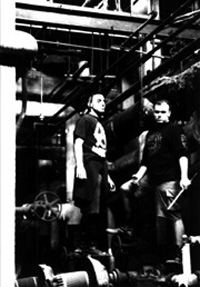 Din_fiv is also on Boston Elektro, isn’t it?
Din_fiv is also on Boston Elektro, isn’t it?
Da5id: Yes. Track eleven, “Clear… (is not a color).”
You each have two projects?
Matt: Actually three. I’m in another project called Logic. We’re releasing a techno CD in four or five days. It’s going to be on Sinless Records, Da5id’s label. It’s a good way to release these projects at the first tier, then approach other labels from there.
Da5id: That’s how Informätik started. We released the record on our own label, and then a month later, Metropolis wanted to pick it up.
What other releases does Sinless have?
Da5id: The first release was Informätik’s Direct Memory Access, the second was din_fiv, licensed to Metropolis, the third release was Informätik’s Direct Memory Access v2.0, licensed to Metropolis, the fourth release was the Boston Elektro 101 compilation, and the fifth release will be Logiq.
Metropolis and the Boston electronic music scene seems to overlap on quite a few projects.
Da5id: They have a lot of East Coast bands, Out Out, Terminal Sect, now Data-Bank-A, and they license for quite a few more, like Sleep Chamber.
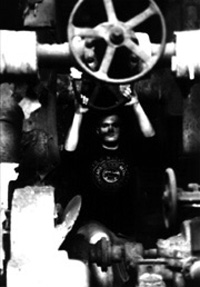 Tribute albums seem to be all the rage these days. Have any of your projects been on any?
Tribute albums seem to be all the rage these days. Have any of your projects been on any?
Da5id: We were just asked recently to be on, I didn’t tell you about this, Matt, a Depeche Mode tribute album.
Matt: You’re a total prick, I would’ve loved that!
Da5id: I said we didn’t have the time.
Matt: But we’ve been on some Internet-based compilations, Wreck Music, an Internet news group focusing on industrial music, puts out an annual (or thereabouts) compilation called Mind/Body. It’s half ambient, noise-based music…
Da5id: That would be the mind…
Matt: And the body half is electro-style dance music.
Da5id: Basically, you’re getting a double CD for ten bucks.
Matt: We were also on the There is No Time compilation that was put together by RafDVA Records. They put out a four CD compilation that was just amazing. Forty or fifty tracks of European-style industrial.
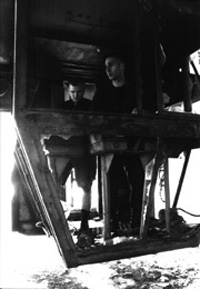 No Depeche Mode covers, but you do have a Led Zeppelin cover…
No Depeche Mode covers, but you do have a Led Zeppelin cover…
Da5id: “Immigrant Song,” that’s our only cover. It lent itself to an industrial interpretation. It was almost industrial to begin with. We did a couple versions of that song. The first one… boy was that bad. I forget what we were thinking. This is the second version. A lot of our songs are the second version of the songs. Actually, “Autonomous,” the second track, is actually the second version of the song who’s remix is track nine.
Matt: We wrote this Depeche Mode-style. Dave’s singing without distortion on his vocals, proving he has a good voice…
Da5id: Pretty cheesy, yeah, so, anyway…
Wait. So what are you saying here?
Matt: It kind of shows our musical philosophies; I’m more on the light, poppy side, and Da5id wants to kill things.
Da5id: Mostly Matt. Like right now. Anyway, we called track nine the remix, even though it was the original, and the hard version, track two, was called the original, even though it’s actually a remix. What we call a remix is usually a completely different interpretation of a song, unlike some bands who’ll just put out a longer version – basically the same song with a drum break in the middle. We call that an edit.
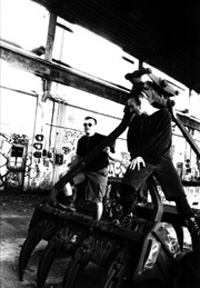 Most of us think of editing as changing and/or shortening.
Most of us think of editing as changing and/or shortening.
Da5id: But you can edit and extend something, especially with digital technology.
Matt: On Logiq’s release, I called a remix the Trail Mix. And I’ve always wanted to do a Pancake Mix.
I think it’s that time in the interview where I ask you what your musical influences are.
Matt: I’m more into the dancier music, but with complex layering. Early Skinny Puppy before they got really scary, Front Line Assembly is one of my favorite bands, before they went heavy metal with all those guitars.
Da5id: Our early ads said either “No Guitars,” or “100% Guitar Free.”
Matt: So early FLA, My Life with the Thrill Kill Kult, Meat Beat Manifesto, a lot of the early Wax Trax! bands… I used to live in Chicago, so I went to Wax Trax! all the time, and I was heavily influenced by them.
Da5id: My influences are more classical.
Matt: Jethro Tull?
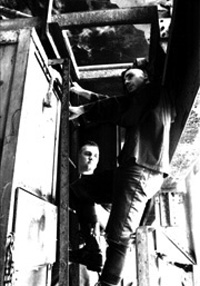 Da5id: Not classic rock, but more traditional music. Now I listen to a lot of the more melodic style of industrial that traditionally comes out of Europe. And most of it is on Metropolis.
Da5id: Not classic rock, but more traditional music. Now I listen to a lot of the more melodic style of industrial that traditionally comes out of Europe. And most of it is on Metropolis.
Matt: That’s one of the great things about being on Metropolis, the bands show a lot of range and can access many styles. It’s great to be labelmates with so many talented people.
From the studio, how do you build a song that’ll lend itself to movement on the dance floor, without resorting to radio-friendly formulas of singable choruses and catch-phrasy lyrics?
Matt: I don’t like most guitar-based music because it’s pure testosterone, almost to the point of being oppressive. The bands drown out all the other elements with this one instrument, the guitar, and I can’t dance to it because there’s no room left for the listener. Our music tends to have a lot of swells. Like Front Line Assembly, many of our verses are very sterile, but then the chorus kicks in with extra energy.
Da5id: It’s a template most songwriters use. You want the verse to be simple so people can listen to it, because that’s the part that doesn’t get repeated. The chorus, or any part that gets repeated, requires less attention, and is usually more energetic. We’ve been breaking those rules more and more often. Like dropping verses. I do that all the time in din_fiv. The listener expects a chorus to be coming up, and you just don’t give it to them. Not until the very end, and then you don’t repeat it. Or, say, between the first and second verses, you provide and an instrumental version of the chorus, without giving anything away, and then you repeat the chorus to death for the last five minutes of the song.

